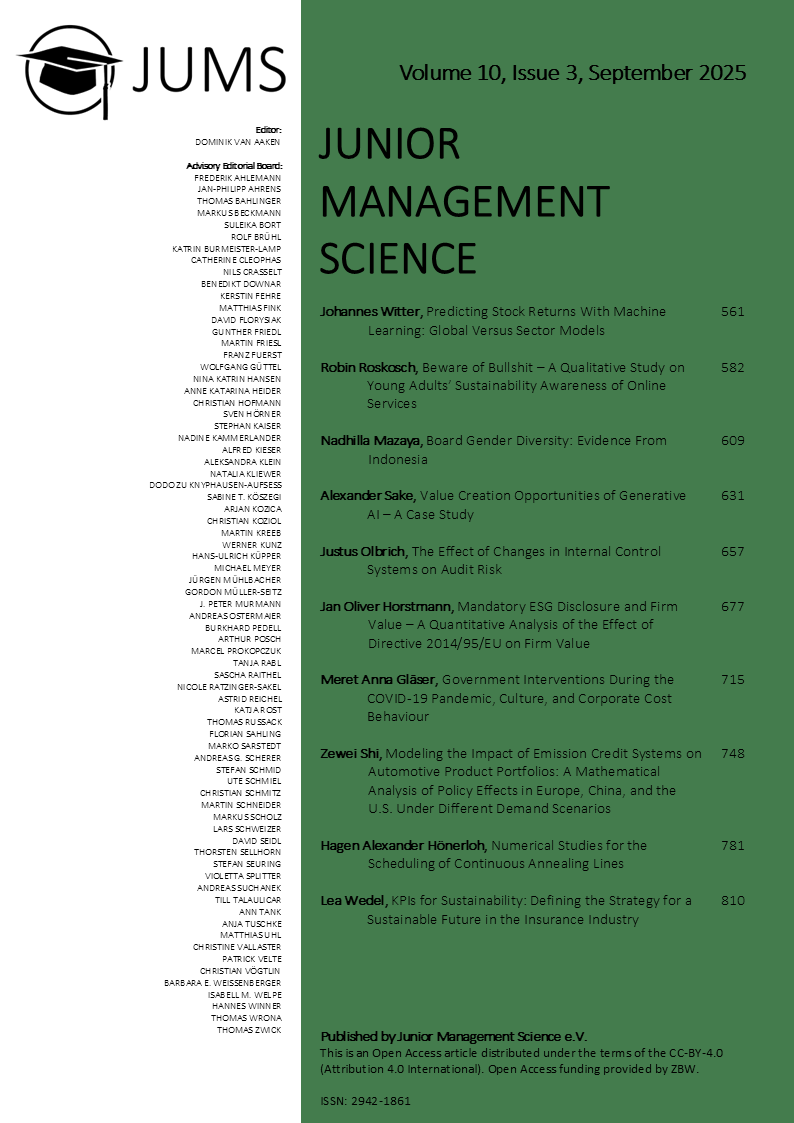Abstract
Since the surge of working in the ‘home office’ during the COVID-19 pandemic, information and communication technology has been seen as a problem solver for the global climate disruption, because it promises savings in emissions through digitalization. However, this is criticized for being a ‘double-edged sword’, as more use of ICT also means an increase in electricity consumption. This thesis poses the question if consumers using services fostering said digitalization are aware of this implication and can contribute to sustainable development by choosing wisely. Thus, this paper leads exploratory research on sustainability awareness of online services, from the perspective of both sustainably aware and technologically skilled individuals. This will be achieved by collecting qualitative data from interviews with two groups of university students from biology and computer science or information systems. The data will be evaluated using the approach of qualitative content analysis and will be investigated further with the help of the concept of bullshitting, to understand how consumers assess ambiguous and misleading sustainability claims about online services. One implication from the interviews is that both companies and consumers should strive to promote reliable knowledge on this topic, as there is a deficit in sustainability awareness of online services.
Keywords: bullshit; green IT; greenwashing; online services; sustainability

This work is licensed under a Creative Commons Attribution 4.0 International License.
Copyright (c) 2025 Robin Roskosch

